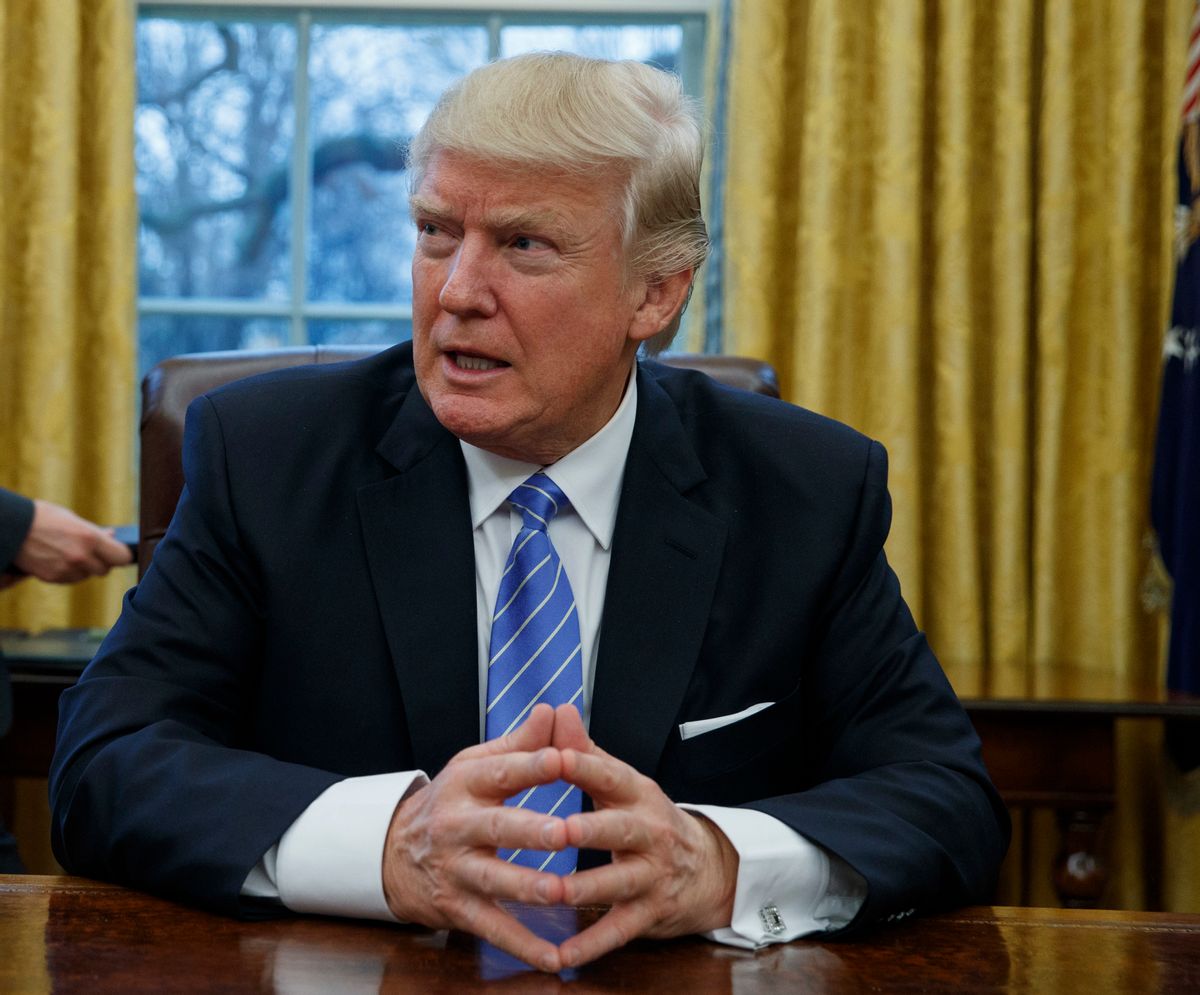President Donald Trump may have just started a trade war with his announcement on Thursday that the U.S. would impose a new series of tariffs on steel and aluminum.
During a hastily convened "listening session" with executives from major metal companies — including Mike Bless of Century Aluminum Co., John Brett of ArcelorMittal USA and John Ferriola of Nucor Corp. — Trump announced that he would be imposing new tariffs.
"We’ll be imposing tariffs on steel imports" and "on aluminum imports," Trump told the executives, according to Bloomberg, adding that it will be signed "some time next week" and that "you’re going to have protection for the first time in a long time."
He later told reporters, "It will be 25 percent for steel. It will be 10 percent for aluminum."
Trump foreshadowed his trade announcement through an early a.m. tweet on Thursday.
Although stocks for some metal companies rose after Trump's announcement, the Dow Jones industrial average fell by 550 points, while the S&P 500 dropped 1.8 percent and the Nasdaq composite fell by 1.9 percent — dropping below its 50-day moving average.
Economic experts are concerned that the tariffs could provoke retaliatory responses from other countries. China, which has been accused of keeping metal prices low by flooding the market, has already begun investigating American imports of sorghum and is considering restricting American imports of soybeans. Mexican Economy Minister Ildefonso Guajardo also warned the Trump administration that there could be retaliation if American trade policies wind up hurting their country.
Trump has also been criticized for the way he announced his new tariffs. After failing to include mention of the planned tariff announcement on the daily White House schedule released at 9 p.m. the night before, Trump said that he wanted to announce the new policy on Thursday before senior officials clarified that there would be a "listening session" instead of an announcement because the policy wasn't ready.
Trump's protectionist trade policies have been a hallmark of his political identity as far back as 1988, and when he won the Republican presidential nomination in 2016 he became the first major party candidate to philosophically oppose free trade since President Herbert Hoover.



Shares